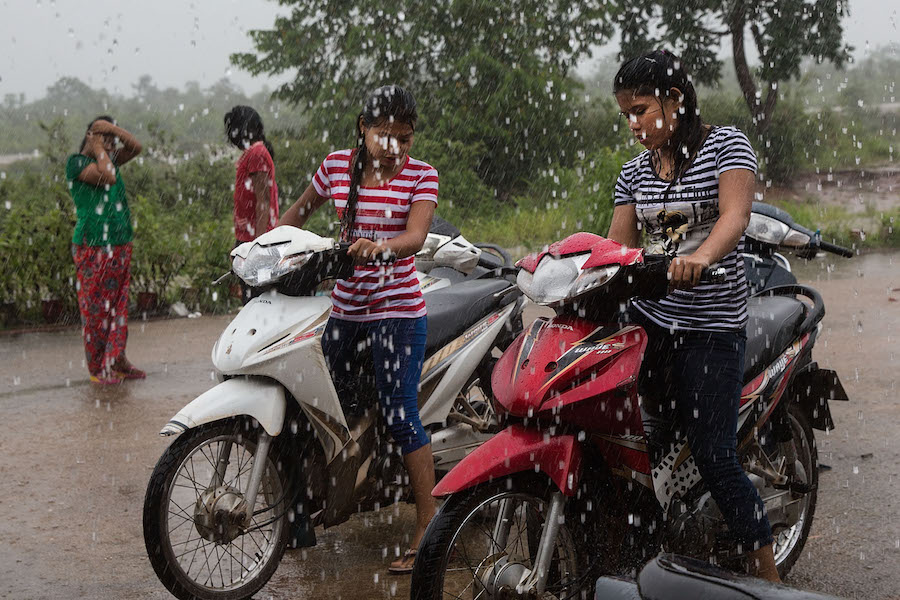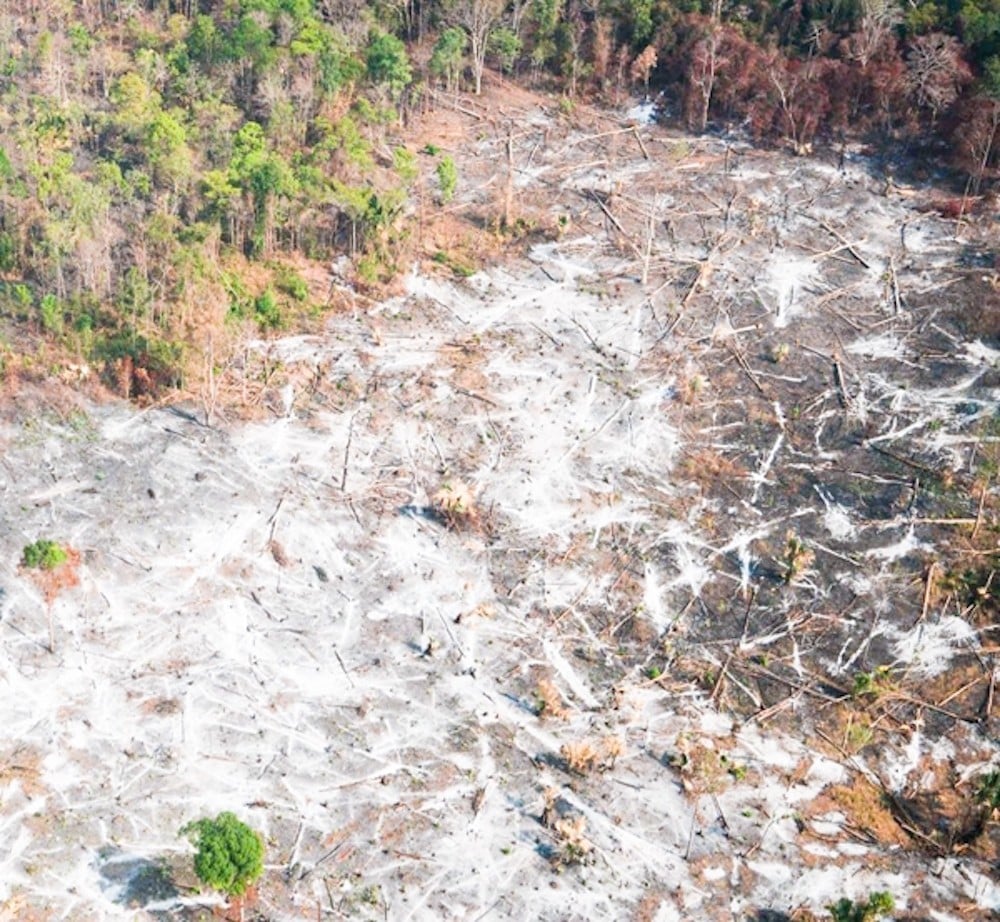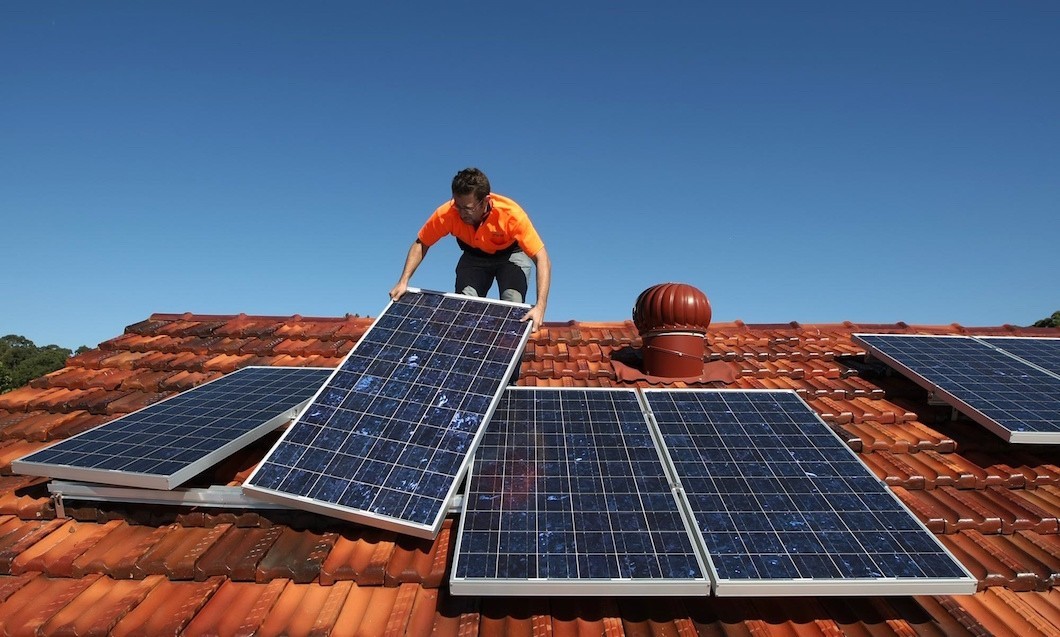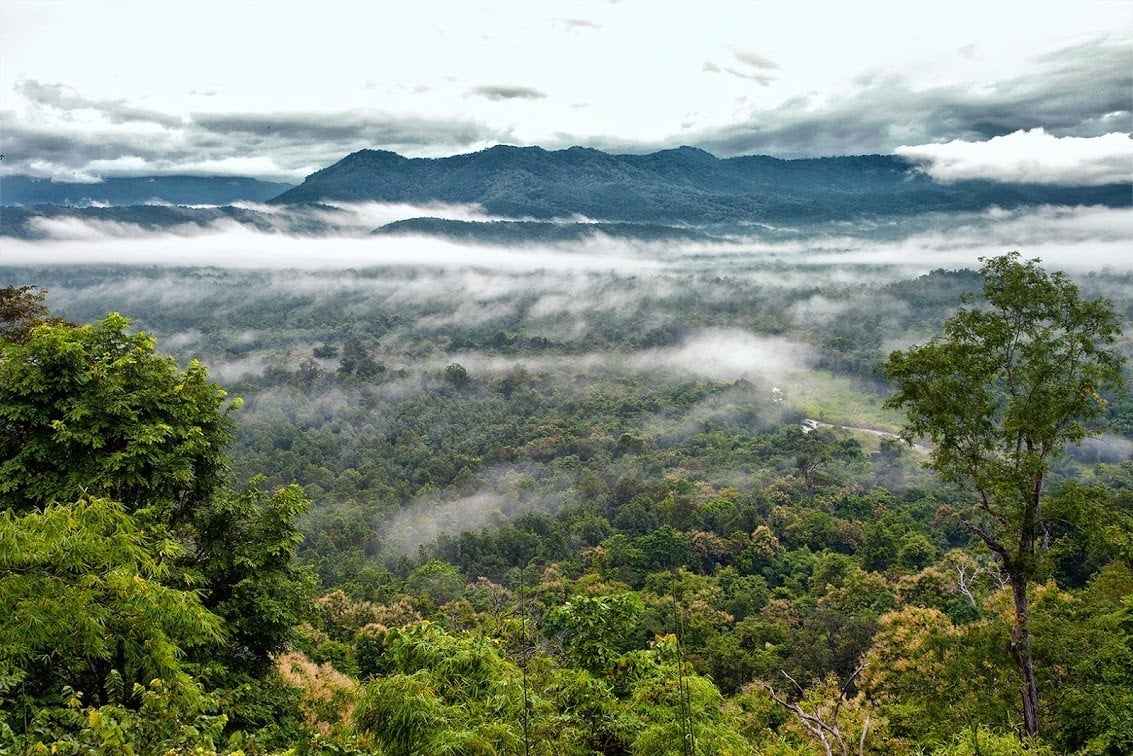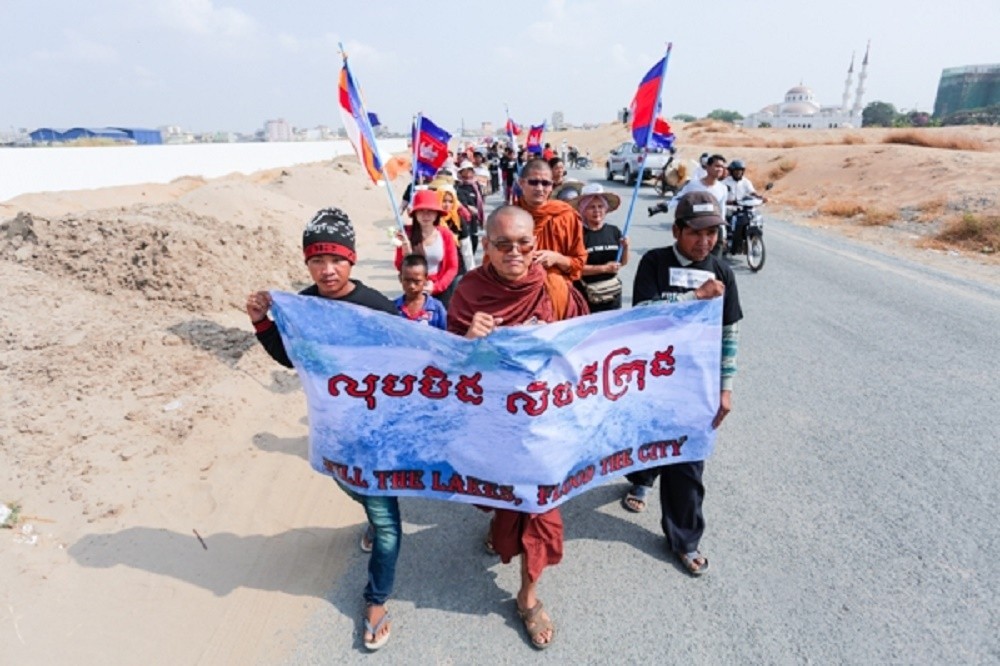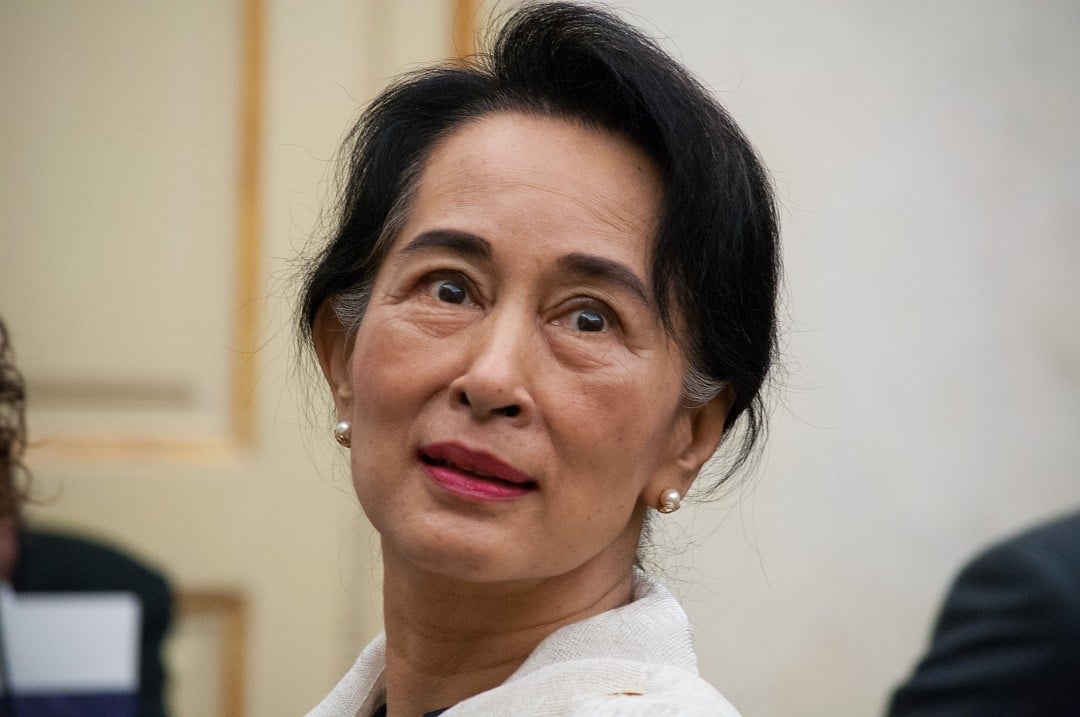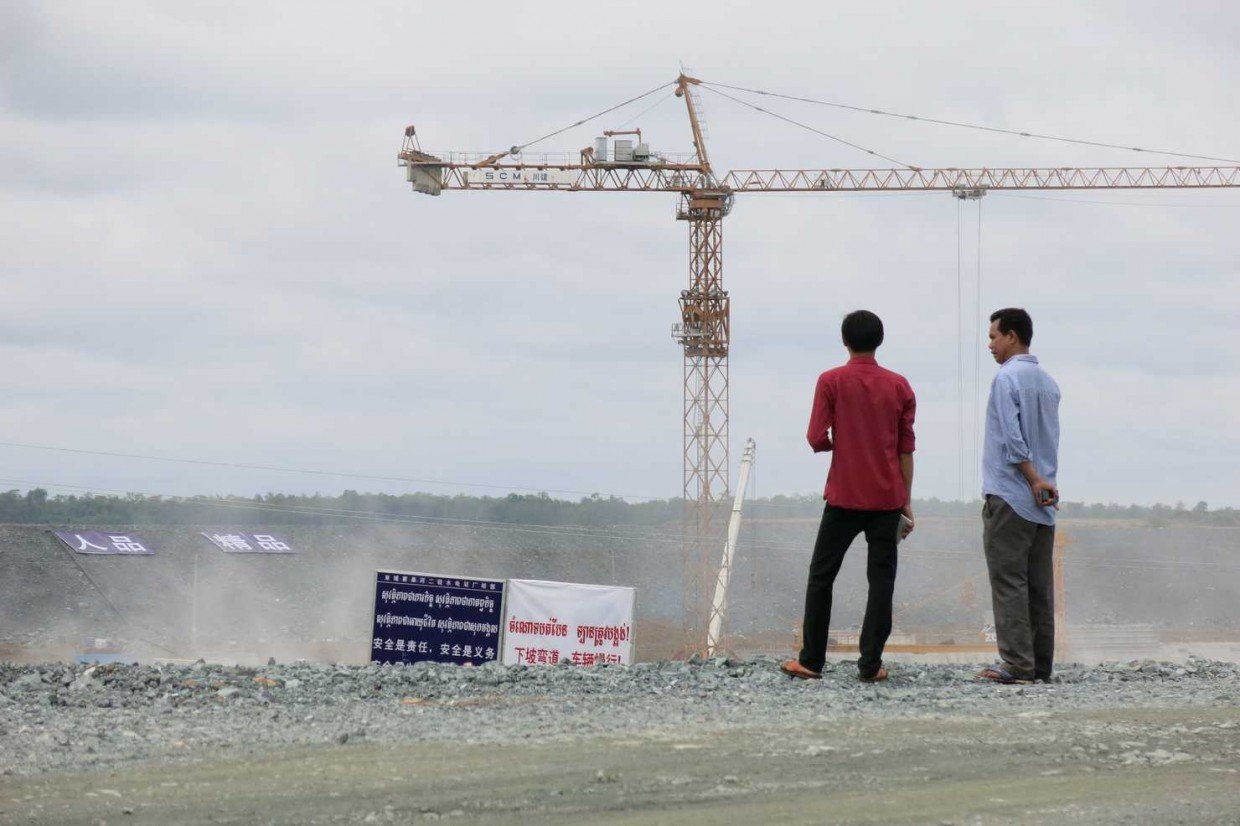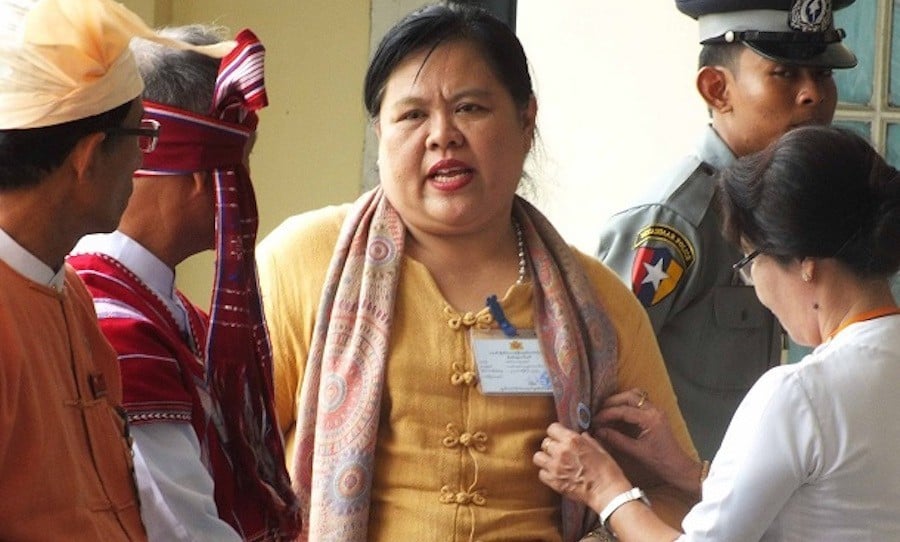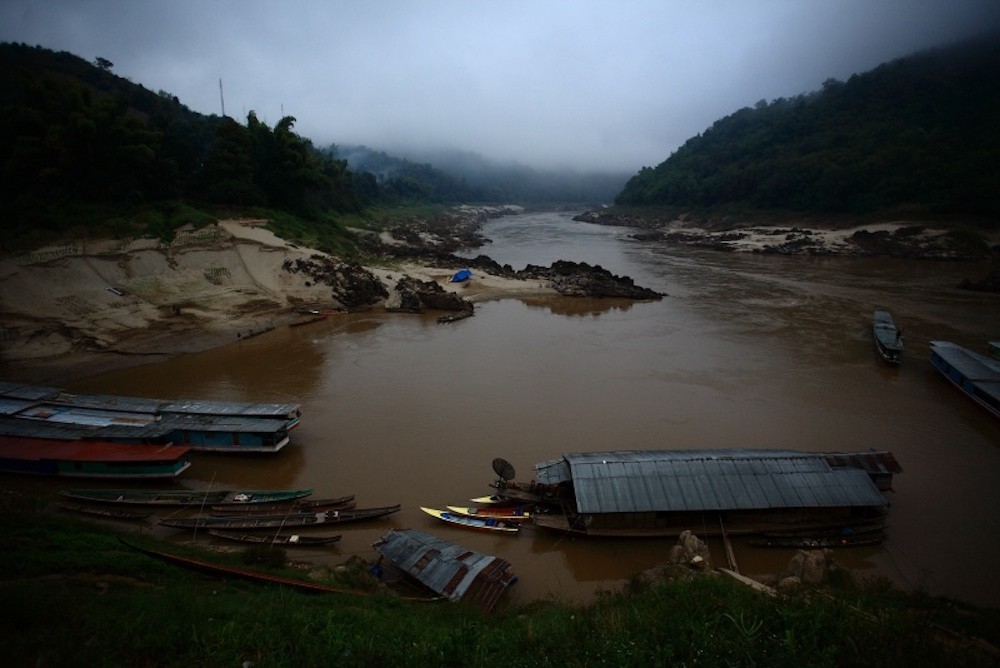Investor confidence in the long-delayed Dawei special economic zone (DSEZ) is growing after Japan signed on as a third equal partner with Myanmar and Thailand this December. Japan’s backing may finally kick start construction of the billion dollar project that has been crippled by funding shortfalls since 2013. If it’s ever finished, the deep-seaport is expected to rival the one in Singapore, opening a new gateway to the Malacca Strait from the western Myanmar seaboard. The 196 square km special economic zone – scaled down from initial estimates of 204.5 square km – would become one the biggest industrial parks in Southeast Asia.
Tag: society-community
Prey Lang Protection Moves Forward
The Environment Minister said he would draw up a proposal to protect the remainder of Prey Lang’s roughly 300,000 hectares after flying over the area with the US Ambassador, NGOs and development partners yesterday.
Minister Say Sam Al said the announcement was a turning point for the government, calling on all development partners to cooperate with each other in order to reach an agreement.
“The size of the last forest was more than 300,000 hectares. Now it’s a good sign for us to make an agreement to make Prey Lang a protected area at once. It’s not an easy issue, it’s a difficult issue,” he said.
The minister added that he has been studying Prey Lang with local authorities and will organize a workshop in the next few days to discuss the proposal before sending a sub-decree to the Council of Ministers for approval. “What we did with the ambassador was preparing Prey Lang as a protected area.
Holding back the sun: Thailand, solar energy and the “base load myth”
Thailand’s Energy policymakers recently announced plans to allow the private sector more access to promote solar power in the Kingdom. But restricting the program to just 100 MW of roof-top installations runs counter to emerging advice from within and experience from abroad, that solar power, and renewables generally are the way forward— not the large, unnecessary energy projects at home and in neighboring countries now driving Thailand’s energy policy.
At the core of this transition is debunking the myth of what’s known as base load: managing that minimal amount of power that is needed 24 hours a day to meet demand. Since electricity demand fluctuates hourly, with peak production in the afternoon when offices, air conditioners, and factories are in full operation, versus the wee hours of the morning when things are more cool and quiet, some power plants run all day long and others just supplement supply when electricity needs rise. Traditional fossil fuel plants have longtime been advanced to service this base load, and Thailand is no different. But techniques in demand management and the ability of solar in particular to meet the high demands during the day can reduce the need for these plants.
Concern over big power projects on exemption list
POWER-PLANT projects that could generate up to 30,778 megawatts, proposed in the Power Development Plan 2015, have shown up in the city-planning exemption list announced by the National Energy Policy Council, raising concern among environmental activists over unregulated development.
Thursday’s announcement also includes alternative power projects under the Alternative Energy Development Plan 2015 and LNG (liquefied natural gas) station and receiving-terminal projects under the Gas Plan 2015.
The controversial Mae Wong Dam in Nakhon Sawan is also on the list appended to the announcement.
Surachai Trongngam, secretary-general of the Environmental Litigation and Advocacy for the Wants Foundation, said the announcement was clarification of a previous National Council for Peace and Order (NCPO) order, 4/2559, and gave more specific information on which projects were being included in the city-law exemption list.
Vietnamese campaign warns of nightmarish coal future
A future built on coal is a dark and dystopian nightmare, according to a new anti-coal campaign launched by environmental groups in Vietnam.
The new photo campaign is called “I Can’t” and it features popular Vietnamese actors, musicians and artists wearing gas masks, performing before a devastating backdrop of smog, societal breakdown and climate change devastation.
Land Conflict Victims Call for a Stop to Lake Filling
Pav Suy More than 300 protesters from about 40 communities affected by land disputes throughout the country launched the Free the Lakes campaign yesterday, marching through the capital to the National Assembly accompanied by monks before submitting a petition to the governing body. The protesters gathered on a large swathe of sand-filled area that was […]
Daw Suu’s in-tray piles up as CSOs raise their voice
Civil society organisations, in general steadfast supporters of the National League for Democracy and its leader, have not been idle in pressing their demands, many in critical areas combining overlapping aspects of her multiple ministerial posts.
Yesterday the NLD received an appeal by three prominent CSOs in Shan State calling for the immediate halt of construction work that has already begun on the controversial Upper Yeywa dam on the Myitnge (Namtu) River, as well as plans to build three others.
Dam-affected villagers make case to UN envoy
The UN special rapporteur for human rights in Cambodia met with Stung Treng Governor Mom Saroen yesterday to discuss the plight of ethnic minorities in the province affected by the Lower Sesan 2 dam project.
Special rapporteur Rhona Smith is in Cambodia on a 10-day visit focusing on women’s and indigenous people’s rights, and on Sunday met with villagers in Sesan district’s Kbal Romea commune.
According to indigenous rights activist Ngach Samin, who was at Sunday’s meeting, the villagers revealed a litany of complaints, primarily focused on their scheduled resettlement to make way for the Lower Sesan 2 dam.
Tenasserim Chief Minister Lei Lei Maw: ‘We Will Rebuild Our Country’
Lei Lei Maw, a sitting lawmaker in the regional legislature for Tenasserim Division, was appointed chief minister of the division on Monday, becoming one of Burma’s first females to hold the position.
Burma’s state and divisional parliaments this week announced the incoming regional heads, appointed by President-elect Htin Kyaw, and the list included two women—Lei Lei Maw and Karen State’s Nang Khin Htwe Myint. Despite pro-democracy icon Aung San Suu Kyi’s prominence in Burma, women have been largely excluded from top political posts in her incoming National League for Democracy (NLD) government.
Lei Lei Maw, 51, is a medical doctor who joined the NLD in 2012 and ran in the November 2015 general election, representing Thayetchaung constituency. The ethnic Karen-Burman, Christian, and mother of four has run a private clinic for more than 20 years and has delivered free health care in remote villages.
She will succeed the Union Solidarity and Development Party’s (USDP) Myat Ko, who sought re-election in 2015 but was defeated. The ceremonial transfer of power will occur on Wednesday night in Naypyidaw.
The Irrawaddy spoke with Lei Lei Maw following her parliamentary appointment on Monday.
Drowning in generosity
Again?” Chai Tamuen, 42, thought when he saw Mekong water rising at the riverbank of Chiang Khan district in Loei eight days ago.
Overnight, water had engulfed the sandy shore of Kaeng Khut Khu, a tourist spot popular for swimming and recreation, leaving stalls stranded on an “island” now surrounded by water.
As a vendor, Mr Chai was forced to leave his kiosk four days later when water submerged half of the island.
“This is not the first time that the bank has been flooded in dry season. It’s happened like this for the last five years,” he said.
“We can’t predict water. Our income has not been stable since Chinese dams have taken control over the water upstream.”
China announced on March 14 it would discharge a massive quantity of water from one of its dams, claiming it would help communities in the Mekong region facing severe drought.


